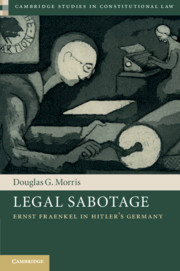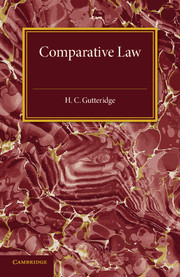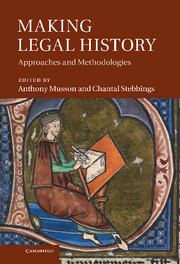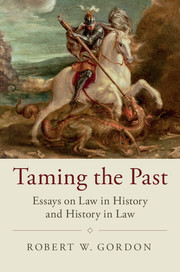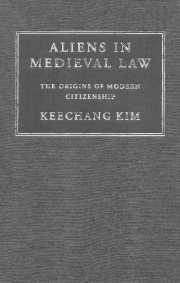Legal Sabotage
Ernst Fraenkel in Hitler's Germany
£30.99
Part of Cambridge Studies in Constitutional Law
- Author: Douglas G. Morris, Federal Defenders of New York
- Date Published: August 2021
- availability: Available
- format: Paperback
- isbn: 9781108792714
£
30.99
Paperback
Other available formats:
Hardback, eBook
Looking for an inspection copy?
This title is not currently available on inspection
-
The Jewish leftist lawyer Ernst Fraenkel was one of twentieth-century Germany's great intellectuals. During the Weimar Republic he was a shrewd constitutional theorist for the Social Democrats and in post-World War II Germany a respected political scientist who worked to secure West Germany's new democracy. This book homes in on the most dramatic years of Fraenkel's life, when he worked within Nazi Germany actively resisting the regime, both publicly and secretly. As a lawyer, he represented political defendants in court. As a dissident, he worked in the underground. As an intellectual, he wrote his most famous work, The Dual State – a classic account of Nazi law and politics. This first detailed account of Fraenkel's career in Nazi Germany opens up a new view on anti-Nazi resistance – its nature, possibilities, and limits. With grit, daring and imagination, Fraenkel fought for freedom against an increasingly repressive regime.
Read more- Tells the story of a criminal defense lawyer in Nazi Germany and brings to life the nature of the criminal justice system and political opposition during Nazism's brutal rule
- The narrative encompasses a range of Nazism's early victims and captures the nature, possibilities, and limits of domestic resistance during the first half of the Nazi regime
- Sets forth how Fraenkel developed his classic dual state theory, which combined an analysis of Nazism's legal and political system with a theory of resistance
Reviews & endorsements
'German-Jewish lawyer Ernst Fraenkel is remembered for his study of Nazi Germany, The Dual State. But talented historian Douglas Morris goes far beyond reconstructing Fraenkel's biography, and following his path to his classic book, in order to dramatize the difficult choices of a pivotal lawyer in resistance. The result is an absorbing contribution not just to the history of German law in the twentieth century. It helps us to ponder the dilemmas of resistance for believers in the rule of law anywhere and even today.' Samuel Moyn, Henry R. Luce Professor of Jurisprudence, Yale University, Connecticut
See more reviews'There is a rich biographical and analytical literature on the lawyer and political scientist Ernst Fraenkel. We know his clear description of the Nazism as a 'dual state', we also know how important he was for the modernization of political theory, especially in Western Germany. But an investigation of his activities as a lawyer and author in the underground after 1933, based on all available sources, has not yet been carried out. It is presented here in an excellent manner, and at the same time it sheds light on the old problem: How can one use the legal order as a means of sabotage against a system of tyranny?' Michael Stolleis, Professor Emeritus of Legal History, Wolfgang-Goethe-University, Frankfurt am Main
'Ernst Fraenkel was an astonishing figure. For the first five years of the Nazi regime, this Jewish, Social Democratic lawyer courageously defended political opponents of Nazis in court, while also essaying brilliant underground critiques of the Nazi legal system. Morris, himself a practicing lawyer and an accomplished scholar, has written an elegant - and all too timely - study of the possibilities and limits of resistance to a regime of perverted legality.' Lawrence Douglas, James J. Grosfeld Professor of Law, Jurisprudence and Social Thought, Amherst College, and author of The Right Wrong Man: John Demjanuk and the Last Great Nazi War Crimes Trial
'Morris not only empathically portrays the personality of the 35-40 year-old Fraenkel. He also thoughtfully illuminates his immediate surroundings in the resistance … And he incisively works out the different intellectual strands that the 'intellectual twins' [(p. 174)] Fraenkel and Neumann followed as they tried - one on the spot, the other from exile - to explain the character of the Nazi regime.' Rainer Eisfeld, translated from Politische Vierteljahresschrift
'For historians of the period … examining institutions and professions has become essential, and when it comes to the legal system, Morris's account will be required reading.' Jon M. Sands, The Federal Lawyer
'… Morris has performed the truly remarkable feat of piecing together and analyzing Fraenkel's legal practice in the Third Reich on the basis of extremely limited and scattered historical evidence … Morris greatly advances our understanding of Fraenkel's 'dual state' theory … His book is a must-read for anyone interested in political theory.' Richard F. Wetzell, EuropeNow Journal
'Morris has offered us a close and sensitive reading of Fraenkel's remarkable years under Nazism, one that deepens our understanding of Fraenkel and of the Nazi criminal justice system in those first five years, but one that also invites reflection on what it means to pursue justice when the system no longer delivers justice.' Sace Elder, Central European History
'Douglas Morris has produced an outstanding intellectual and jurisprudential study of Fraenkel in Nazi Germany, which offers a careful and nuanced narrative of Fraenkel's experience as an opponent of the Nazis, and grounds this fascinating story with jurisprudential insights and contextualised detail. Fraser later writes: Morris' analysis of this type of intellectual resistance is rigorous and essential to any understanding of current debates on how opposition to legalised tyranny might be possible. And he writes at the end: The intellectual history of the possibility of a progressive oppositionist legal theory … must now begin with Morris' monumental study of Ernst Frankel's attempts to embody and theorise resistance to totalitarian regimes and their juridical apparatuses.' David Fraser, The Modern Law Review
'Morris's book provides a much more nuanced and wide-ranging analysis of Fraenkel's activities and writing during the Third Reich than can be conveyed in this short review … His book is a must-read for anyone interested in political theory, the Nazi legal and political system.' Richard F. Wetzell, Europe Now
'… a source-intensive, detailed study of Fraenkel's resistance in Nazi Germany, which significantly enriches research.' Michael Wildt, H-Soz-Kult von
Customer reviews
Not yet reviewed
Be the first to review
Review was not posted due to profanity
×Product details
- Date Published: August 2021
- format: Paperback
- isbn: 9781108792714
- length: 303 pages
- dimensions: 229 x 152 x 16 mm
- weight: 0.456kg
- availability: Available
Table of Contents
Introduction
1. Setting the scene of a Jewish lawyer, like Fraenkel, in nazi Germany
2. Fraenkel as a social democrat practicing law in nazi Germany
3. Fraenkel as an essayist supporting the illegal underground
4. Fraenkel as a scholar renouncing the nazi regime's dual state
5. Thinking about legal justifications for sabotaging a tyrannical regime
Conclusion. The Ernst Fraenkel dilemma.
Sorry, this resource is locked
Please register or sign in to request access. If you are having problems accessing these resources please email [email protected]
Register Sign in» Proceed
You are now leaving the Cambridge University Press website. Your eBook purchase and download will be completed by our partner www.ebooks.com. Please see the permission section of the www.ebooks.com catalogue page for details of the print & copy limits on our eBooks.
Continue ×Are you sure you want to delete your account?
This cannot be undone.
Thank you for your feedback which will help us improve our service.
If you requested a response, we will make sure to get back to you shortly.
×
